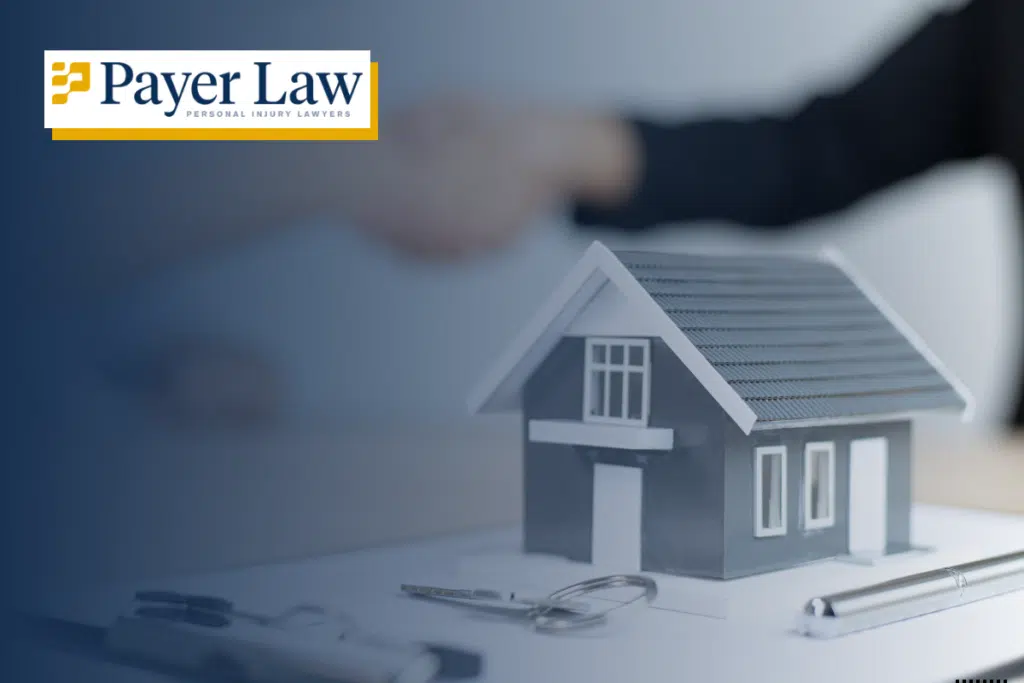
States follow one of two approaches to car insurance: no fault or at fault. Florida is a no-fault insurance state. But what does this mean?
Most states are at-fault states. After an accident, one driver will likely be considered at fault and liable for the other parties’ injuries. Their insurance will usually cover these expenses.
Some states, like Florida, have no-fault insurance laws. After an accident in these states, each party is responsible for their medical costs through their personal injury protection policy (PIP).
Even in a no-fault state, you may be able to seek further compensation from the at-fault driver to cover your injuries and other costs. It is crucial to understand at-fault and no-fault insurance laws and how they can impact your claim.
Table of Contents
- What Is At-Fault Insurance?
- What Is No-Fault Insurance in Florida?
- What Steps Should I Take After an Accident in Florida?
- What Damages Are Available After a Car Accident in Florida
- Can I Recover Compensation if I’m Being Blamed for the Accident?
- Contact an Experienced Orlando Car Accident Lawyer To Discuss Your Case
What Is At-Fault Insurance?
In an at-fault insurance state, the at-fault driver will usually pay for other parties’ injuries through their liability insurance policy. Almost every at-fault state requires drivers to carry a liability insurance policy.
A liability policy may not pay for the at-fault driver’s injuries. These drivers may be required to file a claim with their health insurance.
Thirty-eight states and the District of Columbia have at-fault insurance laws.
What Is No-Fault Insurance in Florida?
The remaining 12 states, including Florida, are no-fault states. Each party will be responsible for their own injuries, medical expenses, and lost wages through their PIP coverage. However, damage to the vehicle will be paid by the at-fault party.
Florida requires drivers to carry $10,000 in PIP coverage, so your policy will cover up to that amount in damages. However, medical costs and lost wages often exceed $10,000. If injuries are serious, an injured driver can seek compensation from the at-fault driver through a personal injury claim or lawsuit.
What Steps Should I Take After an Accident in Florida?
Move Your Vehicle Out of Traffic
Attend To Any Injuries
In the immediate aftermath of a car accident, assess yourself and others for injuries. If anyone needs immediate medical attention, render aid if possible and call emergency services.
If you don’t need immediate medical attention, you should see a medical provider within the next few days to evaluate you for any injuries.
Call the Police
In Florida, you must call the police if someone is injured or dies or if it appears that at least $500 in vehicle damage was caused.
You are not required to call the police if the accident appears minor and no one seems injured. Nonetheless, it is recommended that you call the police after any accident so there is an official report.
Exchange Information With the Other Driver
Florida law requires drivers to exchange contact information after an accident, as well as insurance information.
Contact Your Car Insurance Company
As Florida is a no-fault state, you should inform your insurance company of the accident if you’ve suffered an injury and think you’ll need to file a claim. Even if you only suffered minor vehicle damage, your insurance may require that you notify them of the accident.
Your personal injury lawyer can also notify the insurance company on your behalf.
Contact a Car Accident Attorney
Even if your accident was minor, you should consult a car accident attorney to ensure that you are seeking all possible compensation for your injuries and property damage. Most car accident attorneys offer a free consultation.
What Damages Are Available After a Car Accident in Florida
If you file a personal injury claim or lawsuit in Florida, you may be able to recover economic and non-economic damages.
Economic damages are the financial costs of the accident or your injury, such as medical expenses, lost wages, or vehicle damage.
Non-economic damages are the other costs of the accident or injury, like pain and suffering, loss of quality of life, or mental anguish.
Can I Recover Compensation if I’m Being Blamed for the Accident?
Florida is a no-fault state and has a modified comparative negligence law. This means you can recover compensation for your injuries in a personal injury lawsuit if you were 50% or less at fault. Your financial award will be reduced by your degree of fault. So, if you were 25% at fault, you could only recover up to 75% of your damages.
Contact an Experienced Orlando Car Accident Lawyer To Discuss Your Case
Our experienced Orlando injury attorneys can help you navigate your Florida no-fault car accident claim. Contact our law firm at (407) 648-1510 immediately following a collision to schedule a free consultation with a car accident lawyer.
Hours: Open 24 hours daily
$27.56
MILLION
VERDICT
Car crash resulting in significant brain injuries
$3.10
MILLION
VERDICT
Jury verdict in ambulance liabilty damage case
$2.25
MILLION
VERDICT
Car accident resulting in
a TBI
$2.00
MILLION
VERDICT
Breathing injuries due to
chemical exposure
$1.65
MILLION
VERDICT
Our clients son was killed by an allegedly drunk driver
$1.25
MILLION
VERDICT
Car accident resulting in lower leg amputation
$1
MILLION
VERDICT
Car accident resulting in multiple facial damages

Injured?
Contact Us Today
Client Reviews
Professional, efficient, helpful, and dedicated to their clients. Lysette West extremely attentive and responsive, answered every question or concern professionally and swiftly. She set my mind at ease during some of the most difficult times I have encountered. Even when I missed an appointment because of a natural disaster. She jumped right into the situation cleared it up and got the ball rolling again in short order. I only wish I was able to call on Payer Law for all my legal issues.
James has a heart for justice and is passionate about helping the ones in need of fair representation. Thank you for your professionalism and confidence in what’s right. Thank you for caring and being there for my mom and our family. God bless.
The staff are courteous and knowledgeable. Chris Payer treats me like family and I know he is fighting for me and my case. I highly recommend Payer Law.


